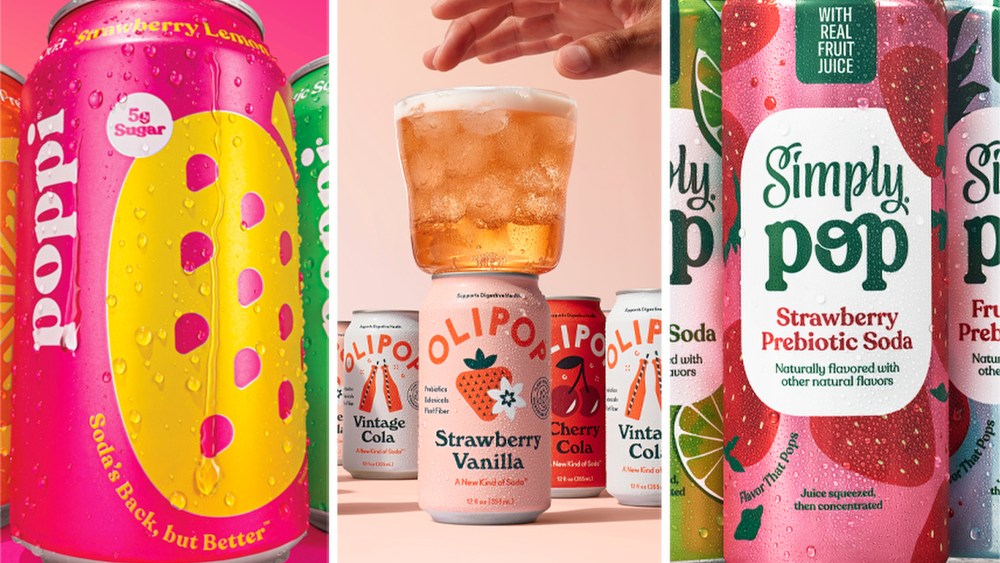In recent years, the soda landscape has witnessed a significant transformation, particularly among health-conscious consumers. One such individual is Andrea Baule, a home and design publicist from New York City, who for a long time fell into the daily habit of consuming a can of Sprite. Aware of the negative health ramifications associated with her soda habit, she sought alternatives, trying options like diet Sprite and even mini cans, yet struggled to break free from the sugar-laden beverage. It wasn’t until she stumbled upon Olipop, a prebiotic soda brand, on social media that she experienced a change. Now, over a year and a half into her new routine, Baule has fully embraced Olipop, enjoying it three to four times a week, a vivid example of the growing trend toward health-centric beverage choices.
Baule’s transition from sugary sodas to healthier alternatives reflects a broader movement among consumers who are increasingly aware of the impacts of their dietary choices. Ben Goodwin, cofounder and CEO of Olipop, highlights that many people recognize the detrimental effects of traditional soda. The key to attracting new customers lies in offering a product that resembles soda in appearance and flavor, creating that “aha moment” where consumers are willing to give it a try. As more people search for cleaner, healthier options—be it in cosmetics or household products—soda has emerged as a new frontier for health-conscious innovation, and social media has become a key driver in this change.
The excitement around healthier soda alternatives is echoed by Becca Kerr, CEO of nutrition at Coca-Cola, who notes that there is a growing interest in gut health as part of overall wellness. According to recent data, the market for digestive health sodas reached an impressive $933 million with an astonishing 121.5 percent growth over the past year. With functional beverages still representing only a small fraction of total soft drink sales, experts suggest there is vast potential for these disruptive products to find a significant foothold in the beverage market. Drawing parallels to how milk alternatives once appeared to be niche but have flourished in a competitive space, this trend indicates that the new breed of better-for-you sodas could similarly carve out a robust market presence.
Initially, brands such as Poppi, Olipop, and CulturePop focused on gut health, producing beverages with foundations that included apple cider vinegar and added fiber. However, as consumer research indicates, the main draw for many is simply a desire for a healthier substitute for traditional soda. Popularity and health claims can get tangled in consumer perception, as proven by Poppi’s recent encounters with legal battles over its health assertions. It highlights the intricate balance brands must maintain—offering genuine health benefits without overstating them. As companies begin to emphasize their products’ roles as soda alternatives, the landscape becomes increasingly diverse, attracting a wide array of consumers interested in both flavor and nutritional integrity.
Part of this soda revolution can be credited to the influence of social media, particularly platforms like TikTok, generating buzz and elevating emerging brands into the spotlight. For instance, Poppi has significantly bolstered its visibility and sales, attributing a considerable portion of its success to viral marketing techniques and influencer partnerships. The brand’s notable earned media value jumped to around $125 million as a result of creative marketing strategies, including timed responses to trending topics and collaborations with both mega-influencers and niche creators. A blend of creative engagement and timely market responses is propelling these businesses forward, and as the consumer landscape broadens, we see that gender does play a role; women are particularly enthusiastic about incorporating these healthier options into their diets.
With the category’s popularity, new players are entering, eager to capture a share of the market. Health-Ade, known for its kombucha, has ventured into prebiotic sodas with its new line, while influencer Mari Llewellyn is launching her version this summer at Walmart. Traditional giants like Coca-Cola and Pepsi are also strategizing to penetrate this evolving market with mass distribution plans. However, the common challenge remains: flavor is paramount. If consumers do not enjoy the taste, they won’t return for more. Innovative brands are tapping into nostalgia by recreating classic soda flavors while also introducing unique combinations that cater to expanding consumer preferences, like added vitamins for extra health benefits.
As this new category experiences exponential growth and innovation, experts believe the pace of disruption will only increase. Numerous brands are now paying attention to consumer desires beyond traditional health claims. Ongoing research indicates a shift towards beverages promoting immune health, stress relief, and even beauty benefits. With the arrival of initiatives linking flavors to familiar, beloved sodas and the inclusion of various beneficial ingredients, the future of soft drinks appears to be paved for health-conscious innovation. As these dynamic brands gain traction and evolve, it is evident that the revolution surrounding better-for-you soda is still just getting started, ushering in a new era in which consumers can enjoy familiar flavors while prioritizing their overall health and wellness.

